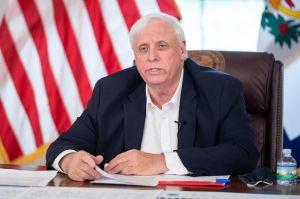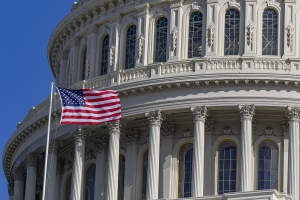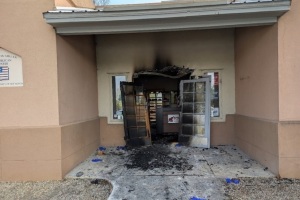Southern Baptists affirm commitment to racial reconciliation without fight over critical race theory
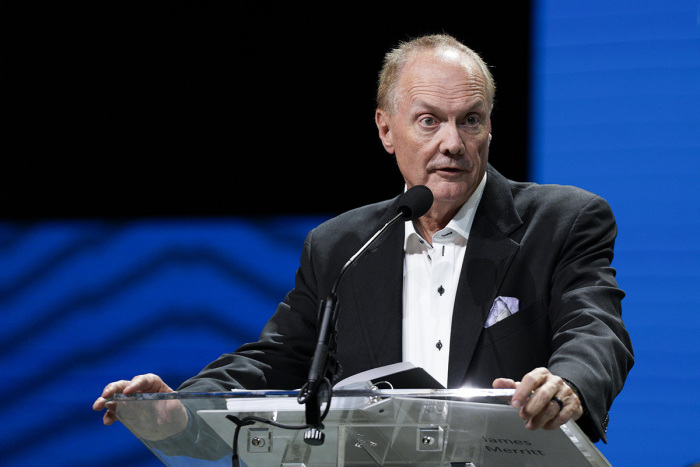
Southern Baptist messengers affirmed their commitment to racial reconciliation and the sufficiency of Scripture to address issues of race by adopting a resolution that avoided the contentious debate over critical race theory at the annual meeting of the Southern Baptist Convention in Nashville Tuesday.
Messengers affirmed their commitment to the issue with a resounding adoption of Resolution 2, which was one of 10 resolutions presented to them for adoption by the 2021 SBC Resolutions Committee. The resolution asked messengers to affirm the sufficiency of Scripture on race and racial reconciliation, condemn racism, and reject any theory or worldview that finds the ultimate identity of human beings in ethnicity or in any other group dynamic. It also asked them to reaffirm the SBC’s 1995 Resolution on Racial Reconciliation.
Prior to the 2021 SBC annual convention, concerns were raised by some Southern Baptists, like Pastor Dwight McKissic Sr., that the denomination would rescind Resolution 9 “On Critical Race Theory and Intersectionality,” which was adopted with much dissent in the summer of 2019.
The resolution defined CRT as a set of analytical tools that can be useful in explaining how race has and continues to function in society. The use of the theory, which has been dismissed by critics as Marxist propaganda aimed at watering down the Gospel, and has been a lightning rod for debate and division in the denomination and evangelical circles in recent years.
Pastor Kevin Apperson of North Las Vegas Baptist Church, who criticized Resolution 2 for not having the courage to address critical race theory by name, voiced his opposition to the resolution by arguing that its language is “insufficient, vague, nebulous, unclear, and ambiguous.”
“I, like many people, have flown a great distance to address an ideology which tells me that I am inherently guilty because of the melanin content of my skin. I am either, according to this theory, an ignorant oppressor or a conscious oppressor because of that melanin content. Two years ago, we approved critical race theory as a teaching tool, and now we need to address it by its name, and this resolution does not do so. Local school systems address it by critical race theory, governors call it critical race theory, state school systems call it critical race theory. If we do not have the courage to call a skunk a skunk, let's not say anything,” Apperson said.
Reacting to the criticism, former SBC president James Merritt, who leads Cross Pointe Church in Duluth, Georgia, and also chaired the 2021 SBC Resolutions Committee, suggested messengers could make better use of their time than using it to fight over critical race theory.
“So fellow messengers, let’s just put it on the table. It is time to find out who we are and where we are headed. I'm going to say this bluntly and plainly. If some people were as passionate about the Gospel as critical race theory, we would win this world to Christ tomorrow,” he said to cheers.
“When I was a student at Stetson University my first semester, I read the New Testament through 27 times. I read the Bible through every year for probably the last 40 years. I found a lot about race. I found a lot about race. There is only one race, the human race. And we are all created in the image of God. I found a lot about racial reconciliation. We have been given the ministry of reconciliation, not just reconcile to man, but people to people,” he continued.
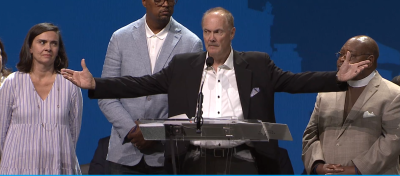
“I didn't find CRT in the Bible. Well, correction, I did find it. It stands for Christ returns triumphantly. We got a choice. My brothers and sisters, we are not the 2019 Resolutions Committee. We are the 2021 Resolutions Committee. And we decided we are not going to limit anything to just one theory. And by the way, the same state schools that are kind of up in arms and some of these people that are against critical race theory are teaching evolution to your kids every single day. What we have done in this resolution is say, you know what? Let's just settle this issue once and for all. Yesterday, today and forever,” he said.
Merritt further suggested that messengers would be of better service to the Gospel if they focused on building bridges of understanding.
“There is a world watching out there. This is exactly what they want. This is exactly what they want to put on the front pages of their paper. Well, as the country song goes, let's give them something to talk about. We can either build bridges and tear down walls, or we can put up walls and destroy bridges,” he said.
“Let me be plain. It doesn't take a lot of effort to blow up a bridge. One stick of dynamite [and] you will do it. But to build a bridge, it takes hard work. It takes sacrifice. And it takes a commitment to reach to the other side to the people who are not with us yet, but we are going to do everything we can to get them there, and I ask you to support this resolution,” he said, as the resolution was adopted without any amendments.
.

















